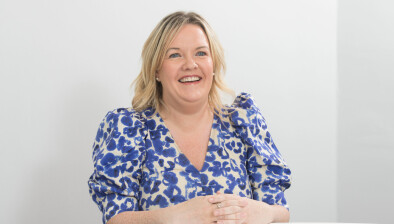David Alexander: Extension of LBTT holiday would increase revenues

David Alexander
David Alexander, joint chief executive officer of apropos by DJ Alexander, discusses how extending the Land and Buildings Transaction Tax (LBTT) holiday beyond the end of March would increase revenues.
Mr Alexander said that the Scottish Government’s’ latest figures show that LBTT revenues from Q4 2020 have increased by £38.2m which is a 32.1% year on year rise compared with the final quarter of 2019. The figure for last month alone rose by 44% which was £18.4m more revenue than the equivalent number for December 2019.
The Scottish Government has seen its revenue from residential LBTT increase from £119.1m in the last quarter of 2019 to £157.3m in the last three months of 2020. In December alone LBTT revenues were £60.2m from 13,580 residential transactions which was the highest ever recorded monthly figure.
“These figures show that reducing the tax level paid on residential housing transactions has actually substantially increased the revenue the Scottish Government has received. A near 50% year on year increase in revenue during December, at a time when there are few signs of growth in the economy, cannot be ignored.”
The reduction in LBTT, effectively forced on the Scottish Government by the actions of Rishi Sunak lowering stamp duty in the rest of the UK in July, has resulted in substantial increases in revenue at a time when it is most needed to restart the economy after coronavirus.
At a time when the Scottish economy needs as much financial support as it can get wouldn’t it be sensible and financially advantageous to continue with the stamp duty threshold starting at a higher level into the future since it is clearly raising more funds which can be used to pay for the NHS, education, and kickstarting economic growth.
Indeed, there is a case for easing the rates at all levels. The Scottish government has previously insisted on maintaining higher tax rates compared to the rest of the UK for first time buyers, investors, landlords, and properties above a certain value. At a time when there has never been a greater need to maintain the financial stability of Scotland, isn’t now the time to reconsider this policy in favour of higher returns over political posturing targeted at its voter base.
Scottish ministers concede that they could have greater returns by permanently reducing the rate of the LBTT but choose not to because it will look better politically to its supporters. At a time when the Scottish economy needs all the support it can get it seems, at best, disingenuous and, at worst, harmful to persist with policies which the Scottish Government knows produce lower revenues.
Taxation should always be about maximising revenue generation to support society rather than political point scoring. This weeks’ budget allows the Scottish Government a real opportunity to announce that Scotland is open for business, wanting to encourage investment, and keen to support individuals, families and investors wanting to live and work in Scotland.
Ensuring that the Scottish property market remains buoyant is a key plank for growing an economy and the opportunity to continue the growth of the last six months lies with Kate Forbes as she delivers her budget on Thursday.







